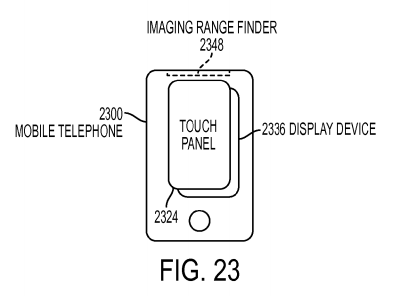Submitted by Jon Reed on
Titled "Imaging Range Finder Fabrication" at the U.S. Patent and Trademark Office, Apple's new patent application describes a range finder comprised of a lens and an array of emitters and photodetectors in "optical communication with the lens." The device would "be incorporated into ... a mobile phone, digital media player, or a personal computer."

According to the text, the array of emitters would emit light that would be directed by the iPhone's lens toward an object. The light bouncing back off the object would pass back through the lens and be received by the photodetectors in the array. With
this information, distance, shape, size and other characteristics will be able to be determined. This is similar to Microsoft's Kinect, which uses an infrared laser coupled with a CMOS sensor to capture 3D data. Like the Kinect, this device's range will be adjustable by moving the lens, array or both.
The patent application gives several examples of what such a device could be used for:
- to scan a room to get accurate room measurements for interior design of the room
- to map a space for inventory control
- space planning, space navigation, and photo sharing
- for 3D object scanning and pattern matching
- as a navigation aid for the visually-impaired to detect landmarks, stairs, low tolerances, and the like
- as a communication aid for the deaf to recognize and interpret sign language for a hearing user
- for automatic foreground/background segmentation
- for real-time motion capture and avatar generation
- for photo editing
- for night vision
- to see through opaque or cloudy environment, such as fog, smoke, haze
- for computational imaging, such as to change focus and illumination after acquiring images and video
- for autofocus and flash metering
- for same-space detection of another device
- for two-way communication
- for secure file transfers
- to locate people or objects in a room
- to capture remote sounds
The invention is credited to Matthew Emanuel Last, and was first filed in late 2012.